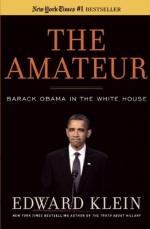Mrs. Ashton turned upon him, her eyes wide with wonder. “But my husband,” she protested, “is not a criminal!”
“My dear lady!” the doctor cried. “I did not mean that, of course not. I meant, if Mr. Ford can find men who don’t wish to be found, how easy for him to find a man who—” He turned helplessly to Ford. “You tell her,” he begged.
Ford sat down on a steamer trunk that protruded from beneath the berth, and, turning to the widow, gave her the full benefit of his working smile. It was confiding, helpless, appealing. It showed a trustfulness in the person to whom it was addressed that caused that individual to believe Ford needed protection from a wicked world.
“Doctor Sparrow tells me,” began Ford timidly, “you have lost your husband’s address; that you will let me try to find him. If I can help in any way I should be glad.”
The young girl regarded him, apparently, with disappointment. It was as though Doctor Sparrow had led her to expect a man full of years and authority, a man upon whom she could lean; not a youth whose smile seemed to beg one not to scold him. She gave Ford three photographs, bound together with a string.
“When Doctor Sparrow told me you could help me I got out these,” she said.
Ford jotted down a mental note to the effect that she “got them out.” That is, she did not keep them where she could always look at them. That she was not used to look at them was evident by the fact that they were bound together.
The first photograph showed three men standing in an open place and leaning on a railing. One of them was smiling toward the photographer. He was a good-looking young man of about thirty years of age, well fed, well dressed, and apparently well satisfied with the world and himself. Ford’s own smile had disappeared. His eyes were alert and interested.
“The one with the Panama hat pulled down over his eyes is your husband?” he asked.
“Yes,” assented the widow. Her tone showed slight surprise.
“This was taken about a year ago?” inquired Ford. “Must have been,” he answered himself; “they haven’t raced at the Bay since then. This was taken in front of the club stand—probably for the Telegraph?” He lifted his eyes inquiringly.
Rising on her elbow the young wife bent forward toward the photograph. “Does it say that there,” she asked doubtfully. “How did you guess that?”
In his role as chorus the ship’s doctor exclaimed with enthusiasm: “Didn’t I tell you? He’s wonderful.”
Ford cut him off impatiently. “You never saw a rail as high as that except around a racetrack,” he muttered. “And the badge in his buttonhole and the angle of the stand all show—”
He interrupted himself to address the widow. “This is an owner’s badge. What was the name of his stable?”
“I don’t know,” she answered. She regarded the young man with sudden uneasiness. “They only owned one horse, but I believe that gave them the privilege of—”




